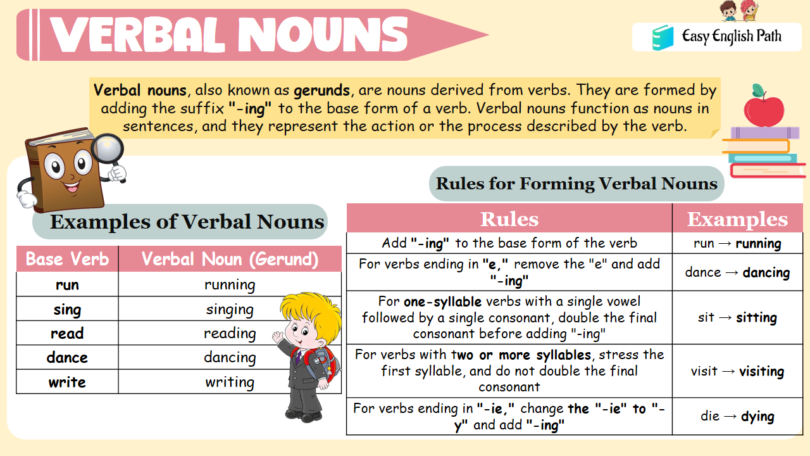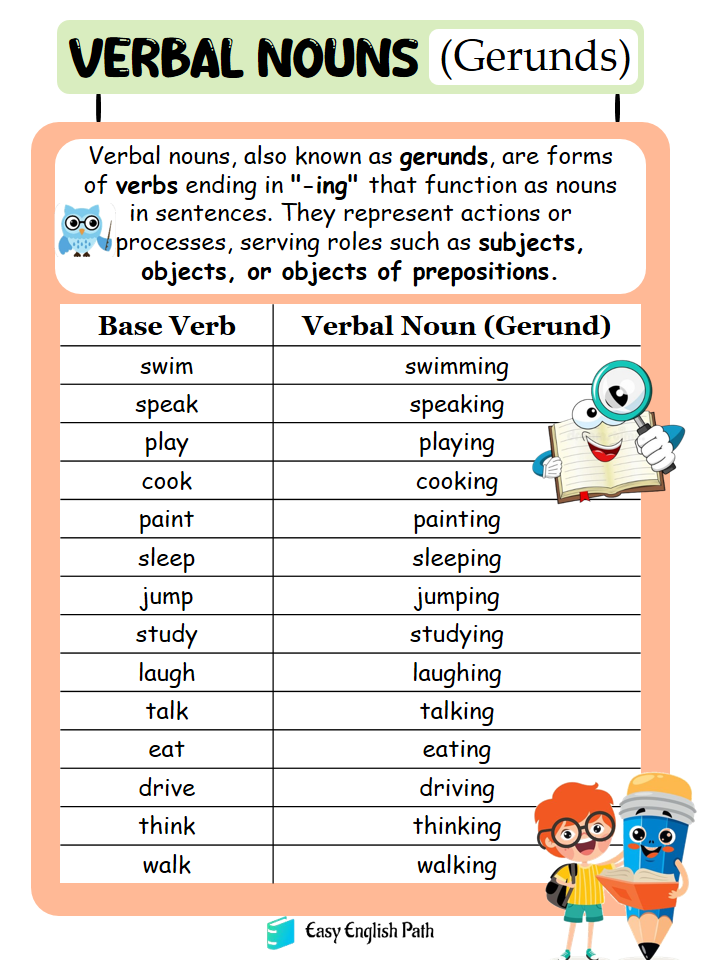Verbal nouns or Gerunds help us talk about actions in a simpler way. When we change a verb into a noun, it makes it easier to explain what’s happening. Verbal Nouns Examples include, instead of saying “I run,” we can use a verbal noun and say “I enjoy running.” See, we turned “run” into “running.” It helps us share not just the action but also why we like it. Verbal nouns make our sentences more interesting and give them more details. So, next time you talk, remember, that verbal nouns make talking about actions and feelings a breeze!
What are Verbal Nouns?
Verbal nouns, also known as gerunds, are a grammatical construction that functions as a noun while maintaining some characteristics of a verb. They are formed by adding the suffix “-ing” to the base form of a verb. Verbal nouns represent actions or processes in a way that allows them to function as subjects, objects, or complements within a sentence.
Examples:
- Running is my favorite form of exercise.
- She is interested in learning new languages.
- Cooking can be a creative and enjoyable activity.
- The children were excited about playing in the park.
- His passion is writing poetry.
Categories of Verbal Nouns:
- Activities
- Learning and Education
- Creativity
- Recreation
- Occupations
- Daily Actions
- Sports and Exercise
- Social Interactions
- Achievements
- Hobbies
Activities:
- Running
- Swimming
- Dancing
- Jogging
- Hiking
Learning and Education:
- Reading
- Studying
- Researching
- Writing
- Solving
Creativity:
- Drawing
- Painting
- Sculpting
- Crafting
- Designing
Recreation:
- Playing
- Hiking
- Biking
- Fishing
- Camping
Occupations:
- Teaching
- Nursing
- Programming
- Writing
- Consulting
Daily Actions:
- Cooking
- Cleaning
- Driving
- Sleeping
- Eating
Sports and Exercise:
- Jogging
- Skiing
- Weightlifting
- Cycling
- Stretching
Social Interactions:
- Helping
- Chatting
- Socializing
- Volunteering
- Collaborating
Achievements:
- Winning
- Accomplishing
- Succeeding
- Completing
- Mastering
Hobbies:
- Gardening
- Fishing
- Photographing
- Bird-watching
- Collecting
Verbal Noun Examples:
- I love reading.
- Swimming is refreshing.
- Writing inspires me.
- They enjoy playing outside.
- She enjoys drawing daily.
- Cooking is my hobby.
- Winning feels fantastic.
- Witnessing the construction was exciting.
- Skiing requires skill.
- Helping is fulfilling.
You May Also Like this






